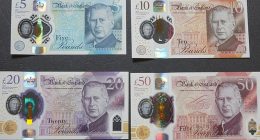Artists are harnessing NFTs to sell their work but ignoring the vast amount of fossil fuels needed to power them
If you happen to count yourself among those appalled by the seemingly unstoppable rise of NFTs, or non-fungible tokens, over the past few months, you might be forgiven a little schadenfreude at the recent news that a dispute has broken out over the ownership of Mars House, a digital file that sold in March for $512,000 (£360,000).
Let’s be clear what’s been purchased here. Mars House itself is nothing more than a string of ones and zeroes residing on a server somewhere. But the NFT isn’t even that string. All it is is another such string pointing to that one, certifying that it is the only copy of that precise sequence of ones and zeroes in existence. Put aside, if you can, the obscenity of a purely virtual dwelling selling for half a million dollars. The dispute over Mars House makes plain what should have been obvious all along: NFTs aren’t even capable of guaranteeing the one thing their value is supposedly predicated on, ownership of a unique digital asset.






